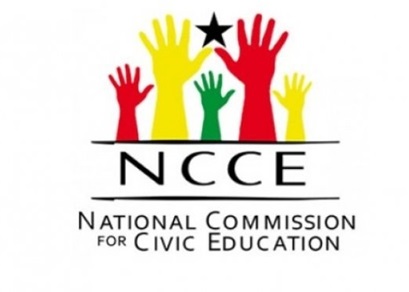
Insights from NCCE’s matters of concern to the Ghanaian voter
The National Commission for Civic Education (NCCE) has in its treasure trove a research publication that comes out during election years titled “Research on Matters of Concern to the Ghanaian Voter.”
Advertisement
The first iteration of this research was conducted in 2004.
The commission has produced the report in every election year (2008, 2012, 2016, 2020) since then.
I appreciate many things about the report including the methodological clarity with which the research is done.
The research uses a structured questionnaire with a combination of both close and open-ended questions for data collection.
The questionnaire covers themes such as voting history, voter intentions, voting behaviour, socio-economic issues of concern to the Ghanaian voter, etc. Respondents are drawn randomly from all constituencies across all regions in Ghana.
The sample size over the years has been good - 6,000 (2004); 5,496 (2008); 7,947 (2012); 7,435 (2016) and 9,541 (2020).
Highlights from research
First, Ghanaians have a well-defined set of issues they expect government to address.
These have not changed, especially the number one issue of concern.
In 2004, the top three issues were education, health and unemployment; in 2008 the top three issues were education, health and agriculture; in 2012 and 2016 the top three issues were education, health and unemployment.
In the most recent report (2020), the top three issues were education, unemployment and health.
Education has consistently remained the number one concern for the Ghanaian voter.
The report goes further to provide information on the specific issues in the various areas of concern.
In education, what are they?
In the 2004 report, the main concern was working conditions for teachers; in 2008, it was making education free; in 2012 it was making the costs of education affordable; in 2016 it was the cost of accessing education and in 2020, the continued implementation of the free education policy.
For the top three issues to remain the same, especially education as number one since the 2004 election, suggests that Ghanaians are still not completely satisfied with the efforts of governments over the years.
There is still room for improvement.
And since 2008, the specific issue of concern in education is accessibility in terms of cost.
Second, is the reason why Ghanaians vote.
It is even more interesting to observe that the reason for the willingness of Ghanaians to vote in presidential and parliamentary elections are very different.
In the 2016 and 2020 report, when asked why they were willing to vote in the presidential election, the number one reason was “to exercise my civic duty.”
Please keep in mind that the question deals the willingness to vote.
The answer should not be construed as the reason why voters may choose one party or candidate over another.
For parliamentary election, the number one reason in both 2016 and 2020 was “to vote for an MP who brings development.”
This is at odds with the sentiments sometimes expressed by some parliamentarians who argue that they are lawmakers and not agents of development.
Third, the research also captures the main reason why voters say they do not intend to vote.
For presidential election, two main reasons have emerged- failure by governments to live up to expectations over the years (2016) and lack of interest in voting (2020.).
In parliamentary election, the two reasons have been a) disappointment with the performance of MPs (2016) and b) lack of development (2020).
Here again, the expectation of members of parliament as agents of development comes up.
Perhaps, it is time members of parliament made peace with this expectation of voters.
In my past two opinion pieces, I have tried to provide an answer to the question “where are the dividends of democracy?”
The NCCE report in 2016 and 2020 asked respondents to rate their satisfaction with the country’s performance on six democratic indicators.
The results show declines in satisfaction between 2016 and 2020 in three areas - a) respect for human dignity declined from 54 per cent to 47 per cent; b) freedom of speech declined from 73 per cent to 65 per cent and rule of law declined from 45 per cent to 40 per cent.
Citizens being alive to their civic responsibilities remained unchanged – 44 per cent in 2016 and 43 per cent in 2020.Improvement in the living conditions of Ghanaians increased from 26 per cent in 2016 to 32 per cent in 2020.
But note that except for freedom of speech, the level of satisfaction on the remaining five indicators is below 50 per cent in the most recent report.
The 2024 Election Report
Another election year is approaching. It is my hope and expectation that the NCCE will continue its tradition of producing this report because the findings do help enrich the discussions as voters try to decide which political party to vote into office.




